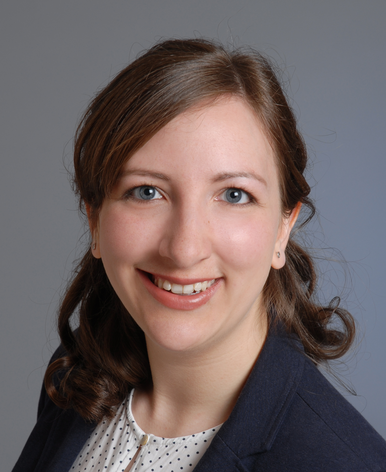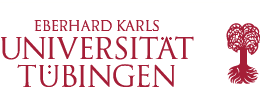
Iris Schnepf (née Zerweck)
Eberhard Karls Universität Tübingen
Experimental Cognitive Science
Sand 6 / room F234
72076 Tübingen
Germany
E-Mail: iris.schnepf (at) uni-tuebingen.de
Phone: +49 (0)7071 29 78973
Office hours: by appointment (please send a short email)
Research interests
I study visual information processing of task-irrelevant and -relevant stimuli using psychophysics and neuroimaging techniques (EEG, fMRI) with the aspiration for high data quality and well-thought-out methodological and statistical analysis methods. I am convinced that maintaining these high standards by combining both, collecting clean data and performing appropriate data analyses, is the fundament of good science and that it is inevitable to replicate studies and vary stimulus parameters to get an idea about what is really going on.My first project was in the field of unconscious response priming (within the Robust Vision Project CRC1233). Recently, our work-group demonstrated that there are serious methodological issues questioning the presence of unconscious processing in unconscious masked priming studies. Therefore, I focused on a landmark study on unconscious priming, applied more appropriate analyses and varied different stimulus parameters to re-evaluate the findings in this field. Strikingly, we found very consistent data that shows that there seems to be no evidence for better unconscious processing in the response priming paradigm - at least - there seems to be no better sensitivity for the primes in indirect ("unconscious") as compared to direct ("conscious") measures. Although we are currently running several experiments using different stimulus and task settings and producing consistent data, there might nevertheless be a setting, where one could find better unconscious processing - or, higher sensitivity to the prime in the indirect as compared to the direct task.
My special interest applies to event-related potential techniques using EEG. It is well-known that one of the biggest strengths of EEG is the temporal resolution. Thus, my current focus is on studies investigating visual information processing of very briefly presented stimuli. These include: (1) The effect of briefly presented primes on the P3b under different masking conditions, (2) The effect of RT differences on the pre-activation of the LRP, and (3) combined with my first project, visual processing and rapid-object recognition in natural scenes.
CV
I studied my bachelor´s and master´s in Technical Biology at the University of Stuttgart. I wrote my master thesis about visual attention to different food cues measured with mobile Eye Tracking. Now I work as a doctoral student at the Experimental Cognitive Science group.Publications
2022
Schnepf, I. A.,, Friedrich, F., Hepting, C., Meyen, S., Franz, V. H. (2022). Neural mechanisms of response priming to not support veridical unconscious processing.[Special issue: Neural mechanisms and markers of veridical and non-veridical conscious perception] Consciousness and Cognition, 102,103348. DOIMeyen, S., Zerweck, I. A., Amado, C., von Luxburg, U., & Franz, V. H. (2022). Advancing research on unconscious priming: When can scientists claim an indirect task advantage? Journal of Experimental Psychology: General, 151(1), 65–81. DOI
2021
Zerweck, I. A., Kao, C., Meyen, S., Amado, C., von Eltz, M., Franz, V. H. (2021). Number processing outside awareness? Systematically testing sensitivities of direct and indirect measures of consciousness. Attention, Perception, & Psychophysics, 83 , 2510-2529. DOI | PDF | Open materials & data |Zerweck, I. A., Meyen, S., Friedrich, F., Hepting, C., Franz, V. H. (2021). Unconscious priming revisited: Is there evidence for superior unconscious processing with EEG? (Poster presented at the "43rd European Conference on Visual Perception" (ECVP), 22.8.-27.8.2021, Virtual)
Zerweck, I. A., Meyen, S., Friedrich, F., Hepting, C., Franz, V. H. (2021). Effects of visually masked numbers and lines on brain activity. Journal of Vision, 21(9), 2293-2293
Zerweck, I. A., Meyen, S., Friedrich, F., Franz, V. H. (2021). Unconscious priming. Should scientists use continuous direct measures? (Talk session accepted for the "Tagung experimentell arbeitender Psychologen" (TeaP@home), 14.3.-16.3.2021, Virtual)
2020-2017
Zerweck, I. A., Meyen, S., Amado, C., Franz, V. H. (2020). Can we process task-irrelevant stimuli better than task-relevant stimuli? The case of number- and line-stimuli. (Talk session accepted for the "Tagung experimentell arbeitender Psychologen" (TeaP), March 2020, Jena, Germany)Zerweck, I. A., von Eltz, M., Kao, C., Meyen, S., Amado, C., Klimm, M., Franz, V. H. (2020). Effects of number priming on task performance: No evidence for preserved unconscious processing (Poster presented at the GK Doctoral Symposium on Cognitive Science, 23.1.-24.1.2020, Tübingen, Germany)
Zerweck, I. A., von Eltz, M., Kao, C., Meyen, S., Amado, C., Klimm, M., Franz, V. H. (2019). Is there evidence for unconscious processing of digits? Journal of Vision, 19(10), 275c. (Poster presented at the Annual Meeting of Vision Sciences Society, Florida, USA)
Zerweck, I. A. (2019, February 20). The bossy brain. Talk given at the Science Slam as part of the "Doktorandentage", 20.2.-22.2.2019, Tübingen, Germany) [Video]
Zerweck, I. A., Meyen, S., Amado, C.,Friedrich, F., Franz, V. H. (2018). Evaluating methods in visual tasks: Confidence ratings convey more information than binary responses. (Poster presented at the "41st European Conference on Visual Perception" (ECVP), 26.8.-30.8.2018, Triest, Italy)
Zerweck, I. A., Meyen, S., Friedrich, F., Grethen, K., Franz, V. H. (2018). Unconscious processing of numbers: How important is the response format? (Poster presented at the "Tagung experimentell arbeitender Psychologen" (TeaP), 11.3.-14.3.2018, Marburg, Germany)
Hummel, G., Ehret, J., Zerweck, I. A.,Salazar Winter, S., Stroebele-Benschop, N. (2018). How eating behavior, food stimuli and gender may affect visual attention - An eye tracking study. Eating Behaviors, 31, 60-67. DOI
Hummel, G., Zerweck, I. A., Ehret, J., Salazar Winter, S., Stroebele-Benschop, N. (2017). The influence of the arrangement of different food images on participants’ attention: An experimental eye-tracking study. Food Quality and Preference, 62. DOI

